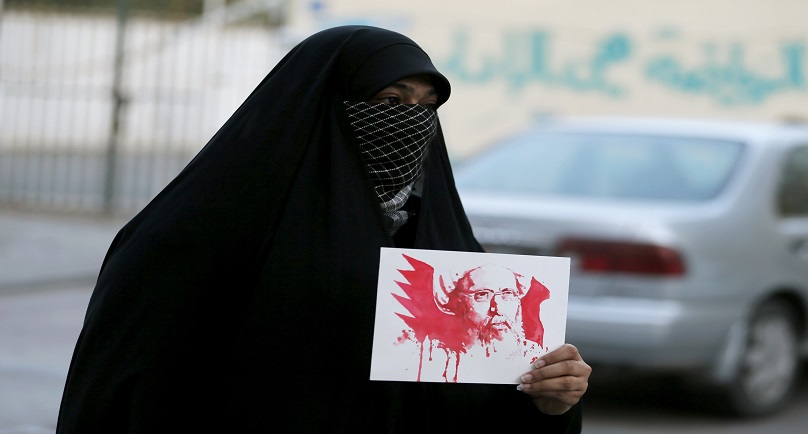Image:A protester holds an image depicting Saudi Shi’ite cleric Nimr al-Nimr as she protests against his execution by Saudi authorities, in village of the Sanabis, west of Manama, Bahrain January 2, 2016. REUTERS/Hamad I Mohammed
![]()
RIYADH (Reuters) – When Saudi Arabian security forces arrested Shi’ite cleric Nimr al-Nimr in July 2012, it’sparked days of protests where three people died, a sign of the regard many of the kingdom’s minority sect held for the preacher, who was executed on Saturday.
Nimr, wiry and greybearded, had been the most vocal critic of the kingdom’s ruling Al Saud clan for years before mass protests erupted among Saudi Shi’it’s during the 2011 Arab uprisings, and had called for demonstrations.
The kingdom’s Shi’it’s have long complained of entrenched discrimination – denied by Riyadh – on the part of the government and majority of Saudi Arabia, which follow the strict Wahhabi Sunni school that regards Shi’it’s as heretical.
Most of Saudi Arabia’s Shi’ite clergy, and local community leaders, struck a bargain with the Al Saud in 1993 after years in exile to address their complaints. The limited progress they made pushed some of the sect towards more radical voices.
Nimr emerged as the most prominent of those after sermons in his home village of Awamiya, an impoverished part of Qatif known as a redoubt of opposition to the Al Saud, in which he called for the formation of a “righteous front” to protect Shi’it’s.
Nimr’s supporters, including many younger Saudi Shi’it’s, have always maintained that the preacher was careful to avoid calling for violence, and highlighted his vocal criticism of the oppression of Sunni Muslims in Syria.
But in the eyes of the Saudi police and the court that convicted him late in 2014, the 56-year-old was an instigator of shooting and bombing attacks against the authorities on behalf of Riyadh’s main regional rival, Shi’ite Iran.
That supposed association was particularly dangerous. Tensions between Saudi Arabia and Iran have escalated as the Arab uprisings leant a bloody edge to their struggle for influence in wars and political conflicts across the Middle East.
Nimr – and Tehran – have always denied any link between them, and his trial, where evidence was presented, was not open to foreign journalists. He had previously accused the Saudi security forces of having tortured him during his detention in 2006, which they denied.
Nimr’s conviction included charges of “breaking allegiance with the ruler”, “inciting sectarian strife”, supporting rioting and violently resisting arrest, the monitoring group Human Rights Watch said at the time.
American diplomats who met Nimr in 2008 described him in an embassy cable later released by WikiLeaks as insisting upon the right of Saudi Shi’it’s to seek external assistance in the event of conflict, a sentiment Riyadh would regard with anathema.
He told them that if open conflict broke out between Riyadh and the kingdom’s Shi’ite community, he would “side with the people, never with the government”.
But by executing him – and three other Shi’it’s – alongside 43 convicted al Qaeda attackers, including some of the Sunni jihadist movement’s most vehement ideologues, on Saturday, the chances of sectarian conflict appeared to increase.
(Reporting By Angus McDowall, editing by Larry King)
Copyright 2015 Thomson Reuters. Click for Restrictions.


